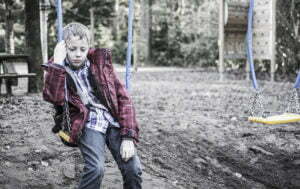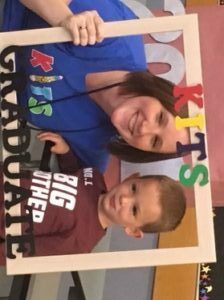Kids can often surprise you. The meekest wallflower can prance into his first day of school without a care in the world, barely even giving you a second glance. A loud, boisterous confident child can become introverted and scared, clinging on to you for dear life. There may be tears (not only from the children) and there may be tantrums… but don’t worry…that’s all completely normal. The most important thing for you to remember when all this excitement is happening is that you’re not alone. There are many tips and tricks that us parents and educators have in our toolbox that can help you have a more successful drop off.
Find out the drop off policy:
Some schools are okay with parents lingering at drop off but most schools encourage parents to make the drop off process as quick as they can. Like ripping off a bandaid. Choosing a quick drop off absolutely does not mean that you love your child less or that you don’t care. You are giving them the opportunity to self soothe, to be independent and to figure out how school works without hovering over them. They are in good hands and having worked many years in a preschool I can personally report that even if a child has thrown the biggest fit you’ve ever seen, they are totally fine five minutes after you leave.
Keep your child in the loop:
It’s a good idea that you talk with your child about what drop off will look like. Cluing them in to this new routine will minimize the shock they may have when it comes down to it. And remember, the first day of school might actually run a little smoother than the second or third day. Some children don’t fully understand the concept of school and once they realize that it’s an everyday sort of deal they might have a rough go at it. Don’t get discouraged…this phase will pass and they will be happily bouncing into their classroom before you know it!
Remind your child that you are only a phone call away:
Tell your child that the school has your number and that they can call if you are needed. This is a quick and easy way to assure your child that you may not be physically with them but that the school can always reach you if necessary.
Give them a special object:
If the school permits it, you can give your child a special object to keep with them. One of my favorite items I have seen was a photograph of a child’s grandfather that he would leave in his cubby for times when he felt distressed. He would quietly sit in the classroom reading nook and look at the picture for comfort. How sweet is that?! Some classrooms don’t allow special objects so you can always have the object waiting for them at home. Hide the object in different places to make it a fun game. Remember Ellie Elephant can’t wait for you to come home! I wonder where she’ll be hiding today?
Establishing a pick up time to look forward to:
Find out what the child will be doing at school right before you pick them up. For example, after you eat your dessert, daddy will be there to pick you up! This gives a child some sort of timeline for your arrival since most children starting school haven’t learned how to tell time yet. Don’t forget to mention that you may be later some days, because of traffic or work meetings or doctor’s appointments, etc. but that you will always be there as soon as you can. You can always call the school and inform them that you’ll be later picking your child up and they will be more than happy to relay the message.
Read books to your child about starting school:
Books are also excellent tools to use to show your child what school might be like. One of my favorite books like this is “Franklin Goes to School”. It’s a sweet story about a turtle who is nervous about going to school and ends up loving it. Make it a routine before bed time to read a book such as this and have a conversation with your child. Ask them what they would like to do at school. Tell them what you liked best when you were there age. This is your chance to get them pumped for school!
You know your child better than anyone and you should feel confident that you’ll be able to tackle any sort of challenges during drop off. Every child is different and what may work with one may not work at all with another. So try all sorts of different tricks! Be positive, don’t get discouraged, and for the love of Pete don’t let them see you tear up when you drop them off 🙂





